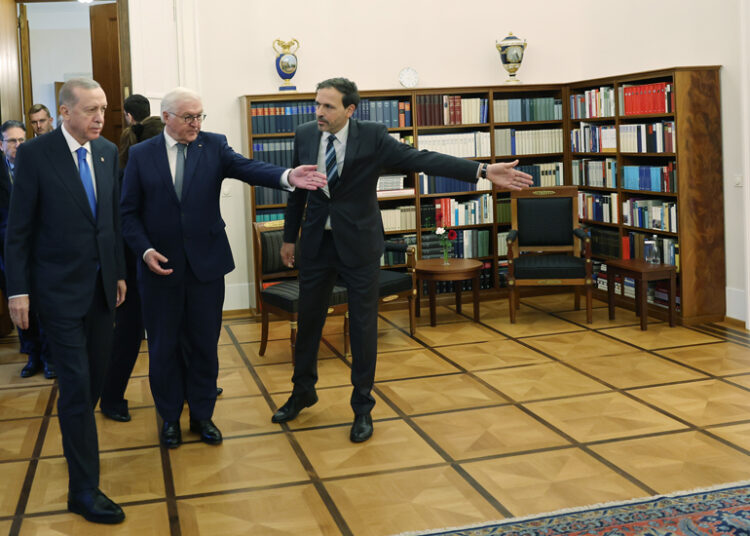Levent Kenez/Stockholm
Turkish President Recep Tayyip Erdogan recently made visits to two EU member states spaced 20 days apart. His trips to Germany on November 17 and Greece on December 7 were notably different from his previous official visits to these countries. These brief excursions stood out in terms of their duration, reception and content compared to Erdogan’s earlier engagements.
Not only is Erdogan receiving fewer invitations from European capitals, except for international summits and meetings, but he also no longer has the luxury of doing what he wants on his trips.
There are various reasons for this. Firstly, he is viewed as an authoritarian leader, and the officials who invite him are unable to extend a hospitable welcome due to public pressure. Moreover, hosts wary of Erdogan’s long arm in Europe prevent him from addressing the Turkish diaspora at large gatherings during his stays. For some time, European leaders have been uncomfortable with Erdogan’s presenting himself as the leader of Turks living in their own countries.
On September 27, 2018 Erdogan, as the guest of German President Frank-Walter Steinmeier, received a warm welcome when he arrived in Germany, where approximately 2.5 million people from Turkey live. On the first day of the official trip, Erdogan had meetings with Steinmeier and then-German chancellor Angela Merkel. In the evening he attended a dinner held in his honor at Bellevue Palace, the official residence of the president of Germany, where he delivered a speech. Merkel also made a friendly gesture towards Erdogan by inviting him to breakfast the following day.
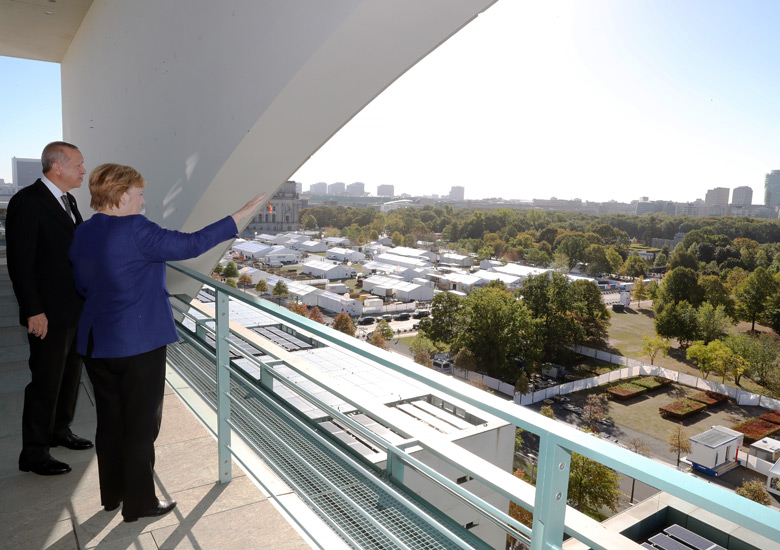
After the Berlin meetings, Erdogan moved on to Cologne, where he met with Armin Laschet, the prime minister of North Rhine-Westphalia at the time and an influential political figure in German politics. Erdogan then attended the official opening of the Cologne Central Mosque, constructed by the Turkish-Islamic Union for Religious Affairs (Diyanet İşleri Türk İslam Birliği, or DITIB), the German branch of Turkey’s controversial Religious Affairs Directorate, commonly known as the Diyanet. DITIB functions as the religious arm of Erdogan’s Islamist regime, funded by Turkey and employing imams sent by the Turkish government. During the ceremony, Erdogan also delivered a speech to members of the Turkish community.
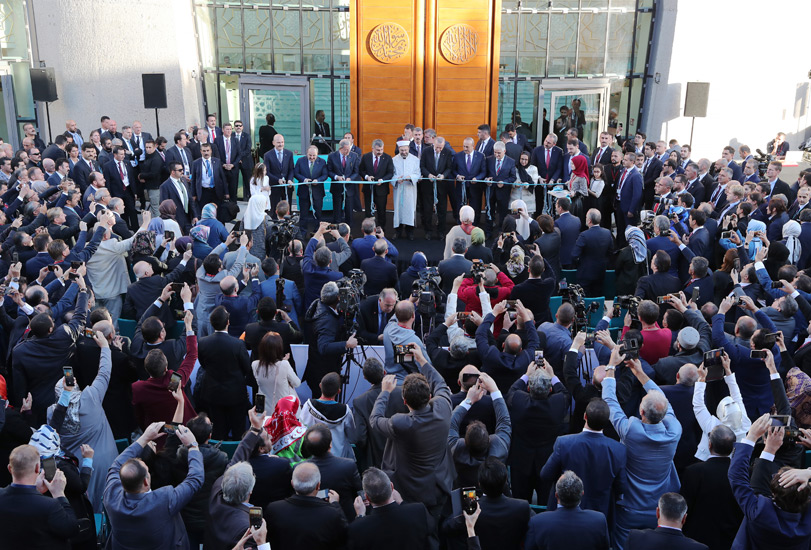
In a noteworthy visit to Germany five years later, in 2023, Erdogan did not receive a warm welcome during his one-day stay.
Contrary to many assumptions, the attitude towards Erdogan doesn’t seem to stem directly from differences in the two countries’ perspectives on Hamas. German media later highlighted a contrast by comparing Erdogan’s reception to that of Brazilian President Lula da Silva, who, like Erdogan, does not classify Hamas as a terrorist organization, on December 3. This comparison was framed as an indication of a stance against Erdogan.
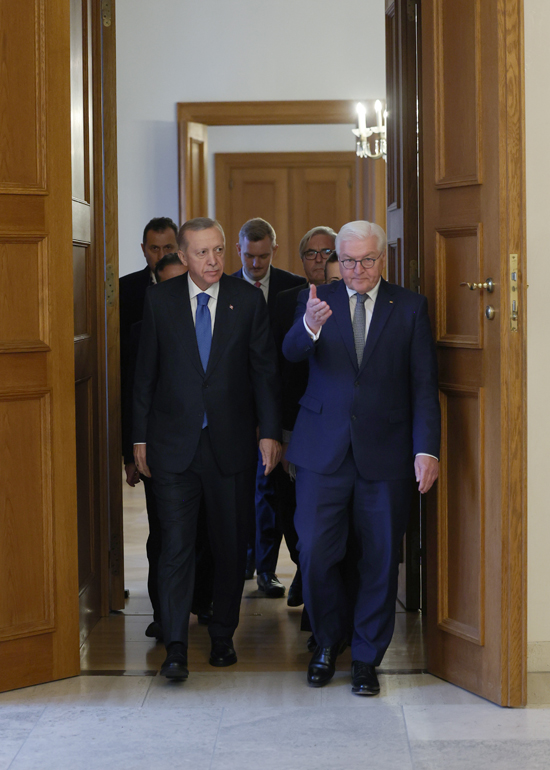
Following his meeting with Steinmeier, Erdogan had a one-on-one and attended a working lunch with Prime Minister Olaf Scholz along with their respective delegations. It’s worth noting that the leaders held a joint press conference before their official meeting, an unusual move that sparked speculation about the possibility of tense discussions and Erdogan’s potential unease prompting an earlier press conference to address potential fallout. Political observers interpreted this rare occurrence as a message from the German side directed at him.
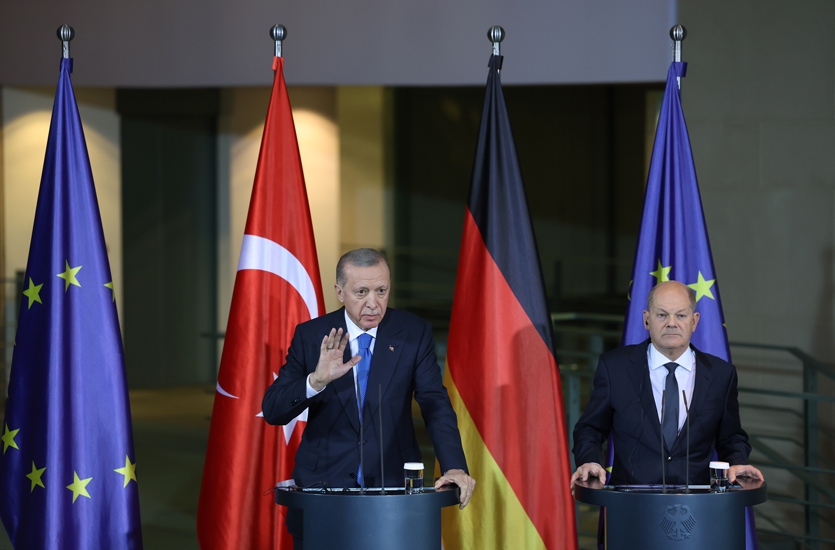
Unlike during his previous trips to Germany, Erdogan this time did not participate any events organized by the Turkish community. Instead, he met at the embassy with members of the Union of International Democrats (UID), an organization that functions as a foreign interest group on behalf of the Erdogan government abroad.
Just six years ago, after his official meetings in Athens, Erdogan headed to Gümülcine (Komotini), a city with a significant Turkish population. He experienced displays of support from Turks lining the streets, and he performed the Friday prayer at the Kırmahalle Mosque. Following the prayer, he visited a high school named after Turkey’s third president, Celal Bayar. Addressing a large group of Turks in the school courtyard, Erdogan said, “I congratulate you for the struggle for existence that you have waged here.”
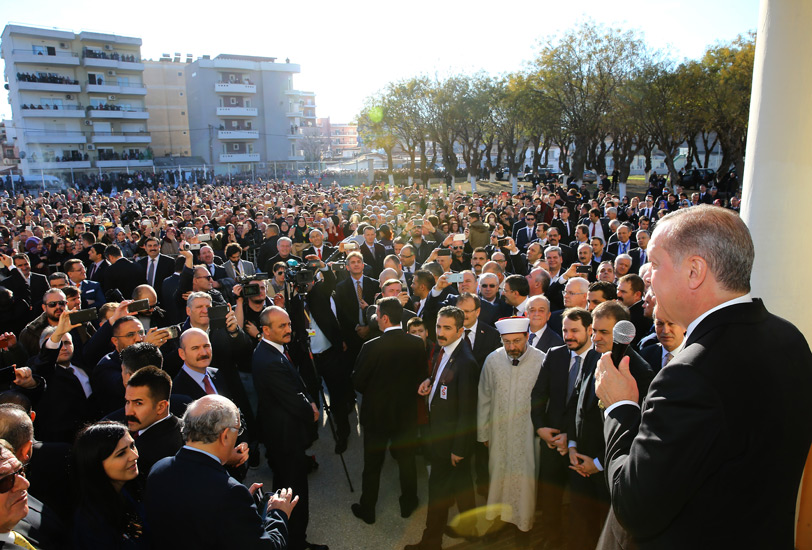
However, during Erdogan’s one-day trip to Greece last week, such events were not on the schedule. In fact, instead of Thessaloniki, which had previously been announced as the meeting place for the two countries’ delegations, the attendees gathered in Athens. The Greek side changed the city for the meetings in response to Erdogan’s mentioning Thessaloniki along with Turkey’s cities as an integral part of Turkish-Islamic civilization, including Gaza, during a crowded pro-Palestine rally held in Istanbul on October 28.
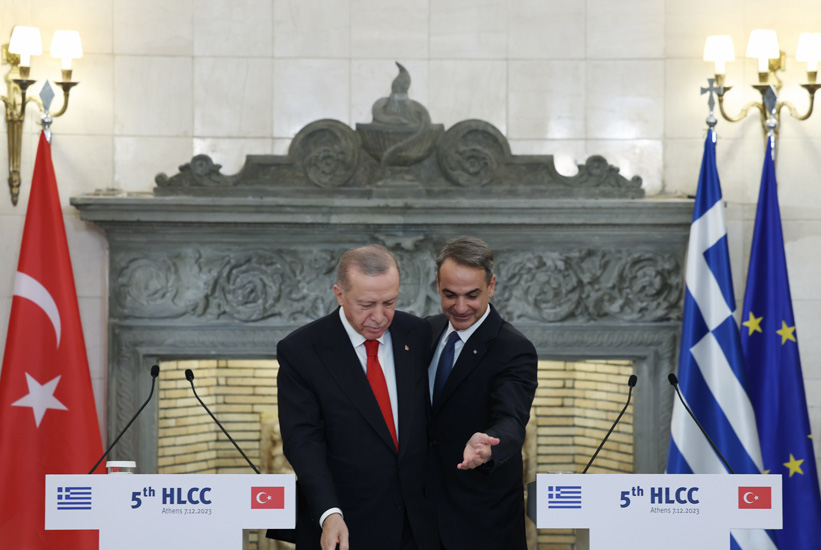
Erdogan’s denial in an interview with Greece’s Kathimerini newspaper of having made the statement, “We can come suddenly one night when the time is right,” referring to attacking Greece, was considered backtracking ahead of the trip. Additionally, the announcement by the Greek government during Erdogan’s visit that Turkish citizens could obtain visas upon entry to 10 Greek islands for short stays added irony to the situation. This move contradicted frequent claims by the Erdogan government that Greece was militarizing the islands, a point often brought up in the context of tensions between the two countries.
Erdogan met with Turkish community representatives at the embassy, as he did during his November trip to Germany, albeit with a smaller number in attendance.

